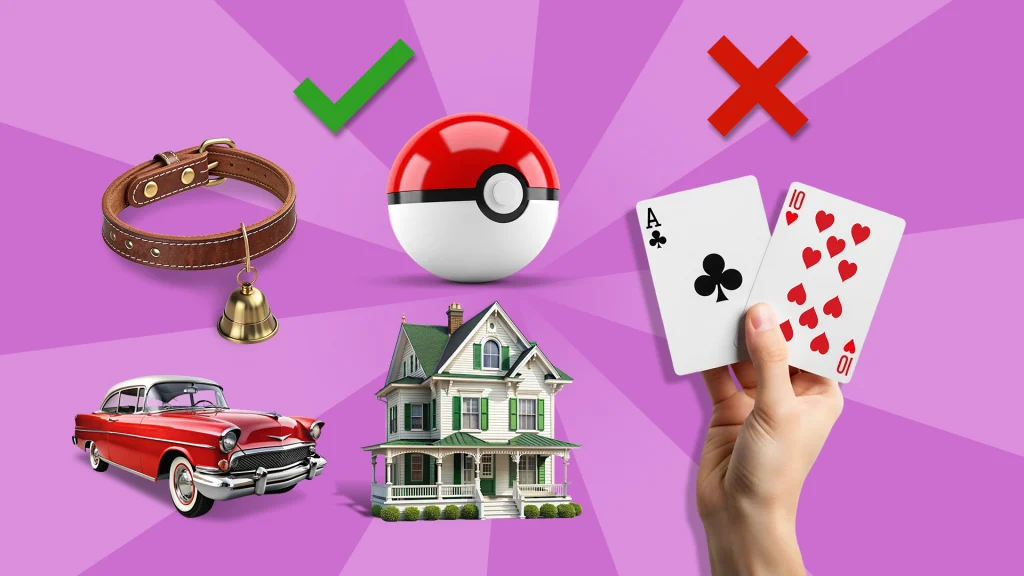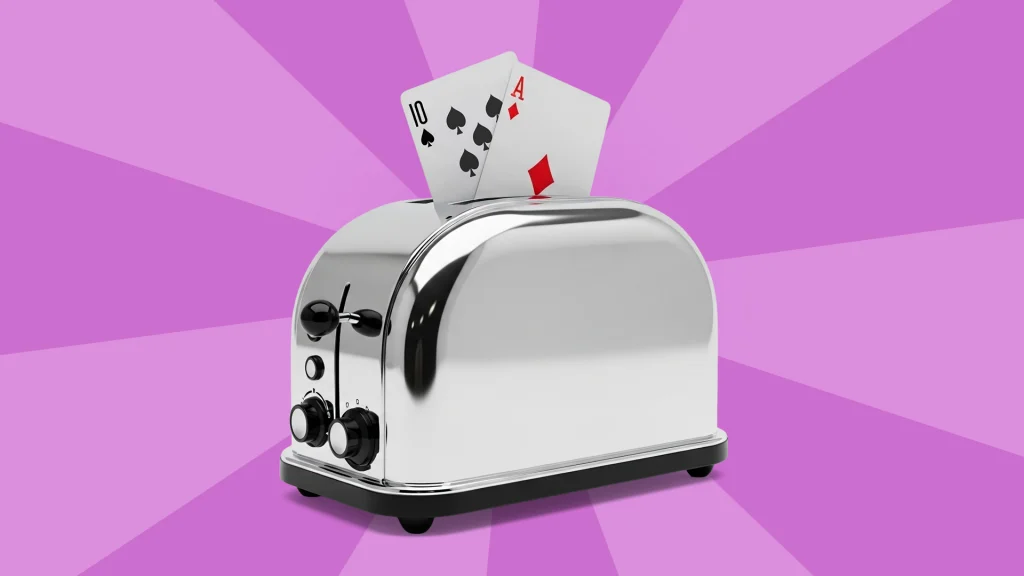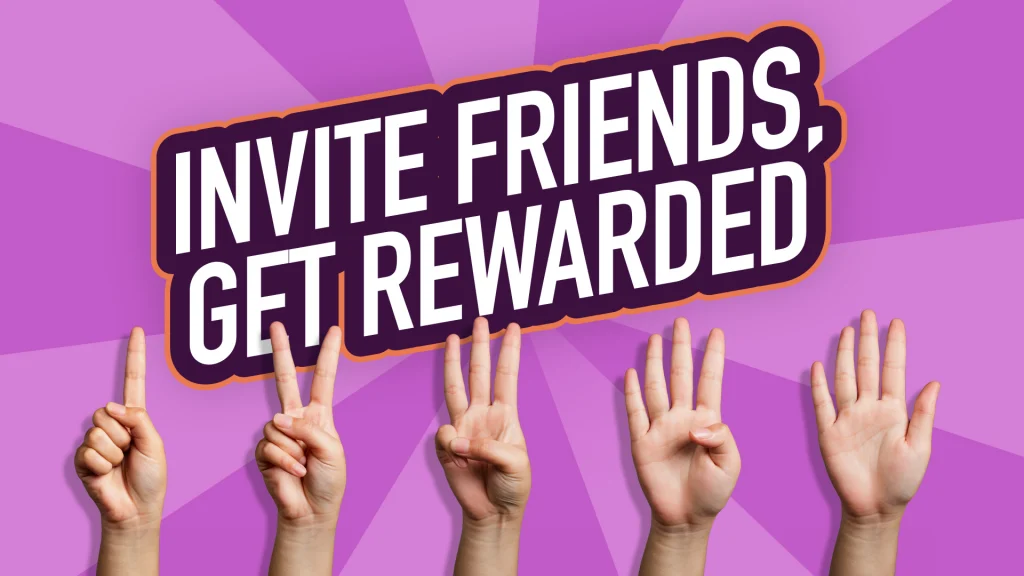What is blackjack insurance & is it worth it?

When you have the option to protect your main hand by purchasing insurance, it sounds like a good idea. You could salvage your bet if the dealer hits blackjack, right? AK-shu-ally…it isn’t that simple. The reality is more like adding chocolate chips to your pasta salad as insurance against too much onion.
Before you agree to blackjack insurance, stick with us while we answer some vital questions, including “What is insurance in blackjack?” “Does insurance matter if I hit in blackjack?” and the age-old dilemma, “What fixes a pasta salad gone terribly wrong?”
All of that is coming and more.
How does blackjack insurance work?
Blackjack insurance is a side bet offered when the dealer’s upcard is an ace. You can buy it for half your original wager. You’re betting that the dealer’s hole card is a 10-value and they have a natural blackjack.
If you’re right, the insurance bet pays 2:1, covering the loss of your main bet. If you’re wrong, you lose both.
So, what does insurance do in blackjack? It offers a break-even backup if the dealer has blackjack. But, as you’re about to see, most of the time, it just adds another fancy way to lose.
When should I take insurance?

The insurance bet in blackjack feels like a smart move, especially when you consider that you need it for your car, your house, your pet, and your first-edition Pikachu card with the red cheeks (uhh… how much do you want for that card? Asking for a friend).
But the reality is far less “safe” than it seems.
So, when you’re studying blackjack strategy and asking yourself, “When should I take insurance?” The answer is a polite never, and we’ll show you why.
When You Have a High Hand
Many players are tempted by insurance when holding a strong hand, such as 19 or 20. The logic is simple but flawed: “If the dealer has blackjack, I’ll lose my big bet. I should protect it somehow.”
But it doesn’t work that way. Hold my beer. We’ll take insurance and show you what happens.
- You bet $10 on your main hand.
- You take $5 insurance.
- Dealer does not have blackjack.
- You lose the $5 insurance.
- You win the hand and get paid $10 (1:1 on your main bet).
- Net gain: $5 instead of $10.
Dang it. You should have stuck with your regular bet.
Even if the dealer does have blackjack, you’ll win insurance but naturally lose your hand, which results in breaking even. Hardly worth the risk.
With that info in mind, if you’d ask us again, “What does insurance mean in blackjack?”, we’d say it means your original bet just bought itself a farewell tour, even if it was a banger.
When You Have a Low Hand
In another, parallel universe, let’s say you have a weak hand, like 14, 15, or 16 (although soft 16 is a different story). You might believe it’s worth taking insurance “just in case.” The thinking goes something like this: I’m probably going to lose anyway, so I might as well try to win something back.
We get it. It’s the blackjack equivalent of putting ketchup on a burnt steak. Desperate times, right?
But remember. Your hand has absolutely zero impact on whether the dealer has blackjack. Insurance is only a bet on whether the dealer’s hole card is a 10-value. If it isn’t, you lose. Simple as that.
Blackjack Insurance Probability & House Edge
If you’re still not convinced, the numbers are where your gut feelings go from “hmmm” to “hard pass.”
When the dealer shows an ace, they have a 1 in 3 chance – about 31% – of having a ten-value card in the hole (10, Jack, Queen, or King), which would give them a natural blackjack. That means the insurance bet loses 69% of the time, and that’s assuming a standard multi-deck game.
The insurance bet pays 2:1, so when it hits, it looks nice. But even if your hand wins overall, “winning” insurance means only breaking even. You don’t win anything extra, so it’s not some kind of gotcha. And because it misses so often, the results over time bite you in A-money-money anyway.
On average, the house edge on insurance is around 7.5%. Compare that to blackjack’s overall 1%-ish house edge with perfect strategy, and it seems silly to settle for less on a “most likely not.”
Is blackjack insurance worth it?

Remember that the blackjack insurance meaning is that you’re betting the dealer’s face-down card has a ten value, which only has about a 31% chance of being true.
So, the million-dollar question (which, if you’ve missed it by now, might mean you’ve also bought extended coverage for your toaster) of “Is insurance in blackjack worth it?” is a solid no way, José.
It’s better to save your money, play out your hand, and let basic blackjack strategy guide your next move.
Does insurance matter if I hit blackjack?
Sound the alarm! A plot twist has entered the building. The dealer shows an ace, and you take insurance. But this time, you hit blackjack. Should you take insurance now? Is it finally time? Is it… is it?!
…still nope.
If you take insurance here, you’re betting against your own hand. When you take the insurance side bet, most casinos ditch the standard 3:2 blackjack payout for even money (1:1), meaning they’ll pay you 1:1 on your blackjack right away, regardless of whether the dealer has it, too. You’re giving up extra winnings just to avoid a push.
Put simply, insurance still doesn’t matter if you hit blackjack.
Should I count cards?

It’s true. Card counting isn’t just a skill director Robert Luketic made up to make Kevin Spacey look cool in 21. It’s a legit way to beat the insurance odds if you know there are lots of ten-value cards left.
But most blackjack games use multiple decks, and card counting takes incredible skill. When optimal basic strategy is already sitting right there, learning card counting just to justify insurance is like learning calculus just to split the restaurant bill. Impressive, sure, but totally unnecessary.
Something you should count, however, is the number of referral bonuses you can rack up at Cafe Casino. Invite as many friends as you can muster, and receive just as many cash bonuses when they sign up and make a successful deposit.
Alternatives to taking blackjack insurance?
If insurance isn’t the move (and by now, we hope you’ve kicked it off your strategy shortlist), what should you do instead?
First, stick to basic strategy. It’s the mathematically proven way to play every hand, and it lowers the house edge to under 1%.
Second, focus on bankroll management. Instead of tossing chips at a side bet with a 69% failure rate, use that money to extend your playing time or increase your main bets when the odds are better.
And finally, just play your hand. The insurance offer is a distraction dressed up like protection. Let it pass and concentrate on the cards you have.
What’s insurance in blackjack? It sounds like protection, but most of the time, blackjack insurance is just a fancy way to lose twice. Say no whenever a game offers you insurance, and instead, focus on the optimal strategy that’s proven to work, such as adding sweet relish to your onion-bombed pasta salad. Try blackjack at Cafe Casino, and leave the insuring to your car, because your blackjack hand doesn’t need it.